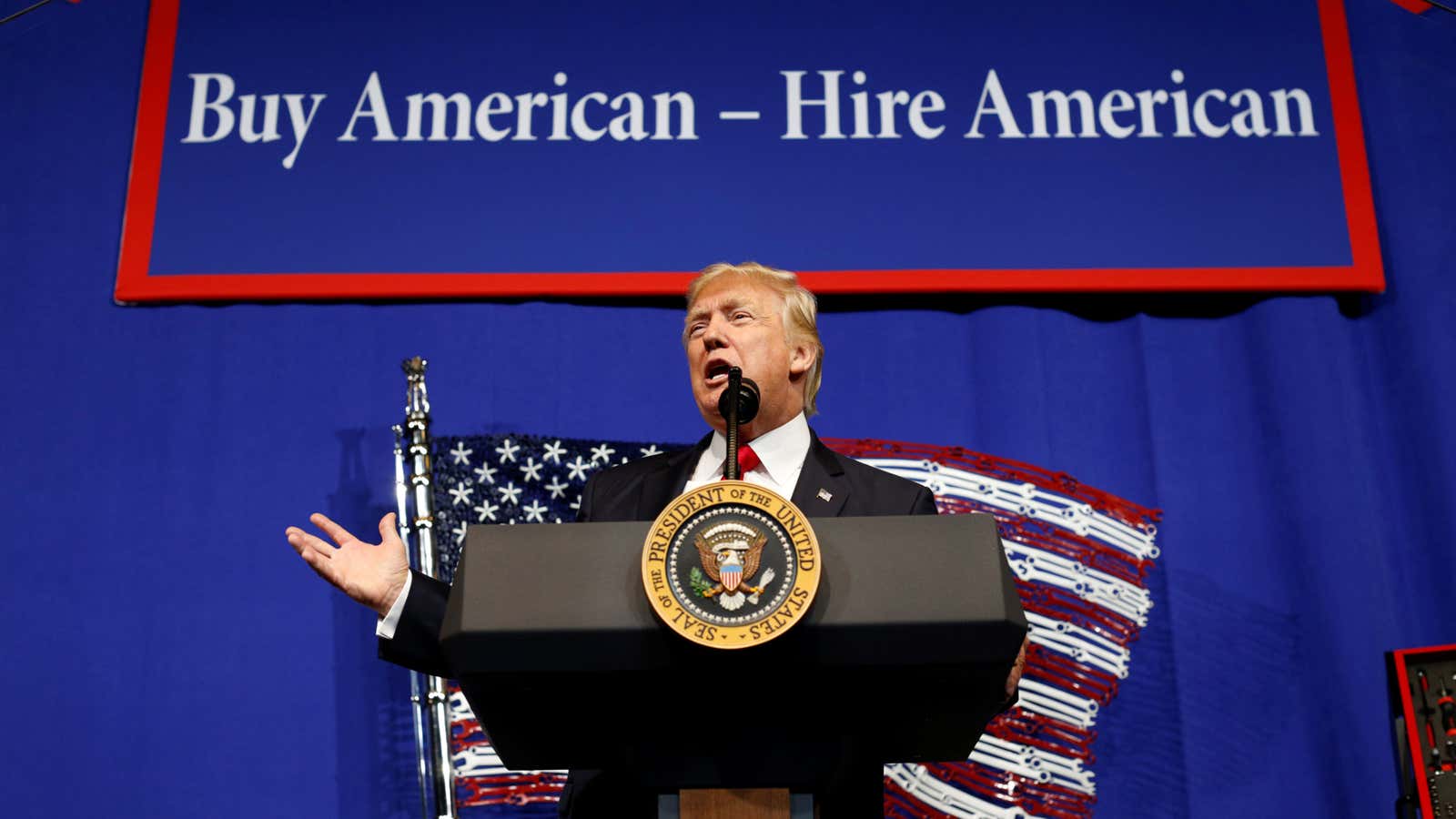US president Donald Trump chose to sign his new executive order promoting American manufacturers and workers this week at Snap-on, a Kenosha, Wisconsin company that casts American steel into wrenches and screwdrivers.
“We’re going to do everything in our power to make sure that more products are stamped with those wonderful words ‘Made in the USA,’” Trump told a crowd of Snap-on workers on Apr. 18.
But these days, Trump will have a hard time finding large American companies uniquely committed to building their products on US soil. Many of them already operate in the countries he claims are stealing US jobs, or buy and sell merchandise through the trade deals he hates. This includes the 97-year-old Snap-on.
The publicly traded company has nearly 20 manufacturing facilities abroad–including three in China—and six other distributing centers spread throughout the world, according to its latest annual report. Although Snap-on’s report doesn’t disclose employment by region, the company is planning to contribute $7.1 million to its foreign pension plans and $2.3 million to its domestic plans in 2017.
Among its future goals, per a March investor presentation, is building more factories in developing countries. Snap-on was not immediately available for comment. We’ll update this story if we hear back from them.
Despite it’s optimistic moniker, Trump’s new executive order, dubbed “Buy American and Hire American,” won’t alter the economic rationale that has driven companies such as Snap-on abroad. At most, it will displace foreign companies doing business with the US government in favor of their American competitors. It could also make it more difficult for foreigners to get high-skilled worker visas.
Trump could exert a bigger influence on where companies do business through trade policy, however—and it wouldn’t necessarily be positive. On Tuesday, Trump said he’s planning to make “very big changes” to the North American Trade Agreement, “or get rid of NAFTA for once and for all.” That could potentially hurt companies such as Snap-on. The toolmaker sells its products in Mexico through a longtime subsidiary in that country, and Canada is one of its largest international markets.
Indeed, together Canada and Mexico make up almost half of Wisconsin’s exports.
